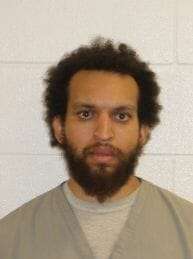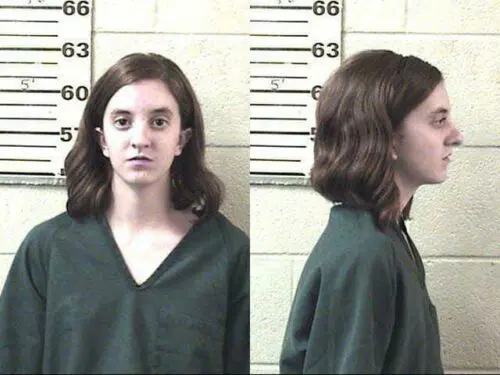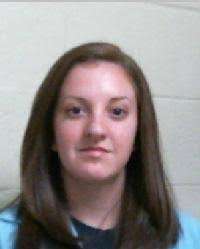
Caril Ann Fugate was the youngest woman in United States history to be convicted of first degree murder. When Caril Ann Fugate was thirteen years old she began dating Charles Starkweather who was eighteen years old. After they were dating for awhile Caril Ann Fugate mother and father were murdered allegedly by Charles Starkweather though there is some belief Fugate had a hand in it. The duo would then go on a multi state crime wave where six people were murdered.
In the end Charles Starkweather would be sentenced to death and would later be executed. Both of the young lovers tried to blame each other for the murders. This teen killer would serve seventeen years in prison before being released. The movie Natural Born Killers is loosely based on Charles Starkweather and Caril Ann Fugate
Caril Ann Fugate Other News
Mass murderer Charles Starkweather’s teen girlfriend, Caril Ann Fugate, is planning another request for a state pardon, and her attorney is trying to turn the request into a campaign issue. John Stevens Berry, a Lincoln attorney and co-author of a recent book about Fugate, said he plans to submit a request soon for a hearing before the State Board of Pardons.
Along with the request, Berry said he will survey the candidates for governor, attorney general and secretary of state — the three offices that comprise the Pardons Board — so voters know where they stand on the request. “People want to know how candidates stand on a lot of issues. I want to know,” the attorney said. “And I want everyone else to know.” Representatives of gubernatorial candidates Democrat Chuck Hassebrook and Republican Pete Ricketts declined requests for comment.
Caril Ann Fugate was 14 years old when Starkweather, 19, went on a killing spree that began in Lincoln and ended in Wyoming. Among the 11 killed were Fugate’s mother, stepfather and 2-year-old half-sister. It stands as the largest mass killing in state history — a notorious crime that has been the subject of movies, books and songs. Starkweather was sentenced to die and was executed on June 25, 1959. Caril Ann Fugate, who said she was forced to accompany Starkweather, was found guilty of being an accessory to first-degree murder in connection with the robbery and murder of one of the victims, Robert Jensen, 17, of Bennet, Nebraska. She admitted taking $4 from Jensen’s wallet just before he and a friend, Carol King, 16, were shot to death. Fugate was sentenced to life in prison. Later, the sentence was commuted to 30 to 50 years in prison, which opened the way for her to be paroled in 1976.
In 1996, she asked for a pardon, saying: “The sentence did not fit the crime.” “Everyone knows I never killed anyone,” Caril Ann Fugate told The World-Herald in 1996. But the board voted 2-0 to reject her request for a hearing. The two members present at the meeting, then-Secretary of State Scott Moore and then-Attorney General Don Stenberg, said mercy wasn’t warranted given the horrendous string of crimes. “In my mind, the State of Nebraska has already been very generous to Caril Ann Fugate,” Stenberg, who is now state treasurer, ssaid of her earlier release from prison. But that decision hasn’t quelled the debate over Fugate’s guilt or innocence. Those who believe she was guilty say she knew her family had been killed and should have escaped from Starkweather. Those who disagree feel the 14-year-old was terrorized by Starkweather, who was five years older, and they say she was not aware of the slayings of her family until the pair were arrested.
That debate was given new life earlier this year by the publication of a book, “The Twelfth Victim,” which argues that Caril Ann Fugate should have been found innocent. Berry co-wrote the book with Linda Battisti, an Ohio lawyer who befriended Fugate and interviewed her several times. One goal in publishing the book, they have said, was to obtain a pardon for Fugate, now 71 and living in Michigan. Berry, a longtime defense attorney, said Starkweather told investigators several times that Fugate was not involved in the slayings, only to change his story just prior to her trial. Starkweather, the attorney said, was baited into changing his story by Lancaster County Sheriff Merle Karnopp, who had Fugate write a note saying that she didn’t want to see Starkweather again. Starkweather ultimately testified that Fugate was a willing participant in the murder spree. Berry said the manipulation of Starkweather’s testimony was just one aspect of the unjust prosecution of Fugate. “His lies convicted Caril,” Berry said. “We are convinced not only that she was treated illegally and unjustly, but was, in fact, innocent.”
Caril Ann Fugate Videos
Caril Ann Fugate 2020
For 60 years, Caril Clair’s life has been overshadowed by one of the most notorious murder sprees in American history.
When she was 14, she had accompanied her 19-year-old boyfriend, Charles Starkweather, on an eight-day rampage through Nebraska that left 10 people dead in 1958.
Starkweather was executed and Clair, then known as Caril Ann Fugate, served 18 years in prison.
She has always insisted she was innocent, that Starkweather had abducted and held her captive during the trail of terror.
Now 76 and living in Hillsdale, Clair has one final chance to plead her case.
She is seeking a pardon from the Nebraska Board of Pardons. The agency is holding a Tuesday hearing on the issue.
“The idea that posterity has been made to believe that I (willingly participated in) a murder spree is too much for me to bear,” she wrote in her pardon application.
Few people believe Clair’s protestations of innocence.
Not the jury, which convicted her of murder. Not an earlier pardon board, which rejected her request for a hearing in 1996. Not the citizenry of Nebraska, who still get angry at the mention of her name
Nobody in Nebraska can quote Great Plains bard Willa Cather, but everyone knows what Starkweather once said about Clair. Starkweather had told reporters that, if he was going to die by electric chair, Clair should be sitting on his lap.
Tom King would be willing to throw the switch. His aunt and her boyfriend were killed after offering to help Clair and Starkweather when their car got stuck on a muddy road.
“She should just keep her mouth shut,” he said about Clair. “We don’t want to hear about it anymore. It just brings up hard feelings all over again.”
King, 54, a Lincoln plumber, then issued an ominous warning.
“She better not come back to Lincoln,” he said. “If she does, she may not make it back out of town.”
Clair, who contends with various health ailments, wasn’t planning to attend the Tuesday hearing in Lincoln.
After leaving prison, she moved in Michigan and has led a quiet life, relatives said. She had hoped to become a “little, dumpy housewife,” washing socks, burning toast.
Instead, Clair toiled 20 years as an orderly at a Lansing hospital before retiring, a stepson said. She got married in 2007, but her husband died in an auto wreck six years later. She has four stepsons.
A life of infamy has left her a shell of a woman, said stepson Tom Clair.
“She wishes she could wash everything away,” he said.
Caril Clair declined to be interviewed for this story.
Unlike the mass shootings of this century, the Nebraska murders happened in what felt like a different America.
The heartland of the 1950s was a seemingly more innocent time and place, historians said. Such tranquility wasn’t supposed to beget such ugliness.
The carnage left such a stain on the country’s psyche that it continues to resonate today. Among the movies it has inspired are “Badlands” and “Natural Born Killers.”
“It was the first crack in America’s innocence,” said Mike O’Hara, a crime historian based in Los Angeles.
Starkweather was a James Dean wannabe who, like the actor, favored a ducktail, blue jeans and an ever-present cigarette dangling from his lips, according to news reports. He also was a short, nearsighted garbageman who had dropped out of high school.
He and his eighth-grade pixie in a ponytail cut a bloody swath through Nebraska in a battered black 1949 Ford painted red where the grille used to be
Before the week-long reign of terror was over, the National Guard had been called and homeowners had huddled behind locked doors with shotguns.
“Things like this weren’t supposed to happen back then,” O’Hara said.
When Clair was tried for murder, the jury didn’t believe her argument of being an unwilling participant.
They were more swayed by the testimony of Starkweather and the prosecution’s argument that she had failed to take advantage of repeated chances to flee from him.
She was sentenced to life in prison. It was later commuted to 30 to 50 years when the U.S. Supreme Court ruled it was unconstitutional for juveniles to be given mandatory life sentences.
After time off for good behavior, she was released in 1976.
In 1986 Joyce DePue of Holt received a call from her daughter. Kathy Ross was preparing to return to work after having a baby and told her mom she had found a perfect babysitter — Caril Ann Fugate.
DePue let out a squawk.
“Oh, my God,” she sputtered. “Don’t you know who that is?”
Clair, who worked at Ingham Regional Medical Center, would go on to take care of Ross’ two daughters for 14 years.
She never arrived empty-handed, bringing toys, board games, materials for arts and crafts projects, DePue said. She gave the girls gifts and took them on jaunts to the zoo and arcades.
“I’m here to tell you: I’m 100% behind her. She is a wonderful, wonderful woman,” DePue said. “She deserves anything good that comes to her the rest of her life.”
When ABC ran a miniseries about the murders called “Murder in the Heartland” in 1993, one of Ross’ daughters asked Clair to talk to her ninth-grade class about it.
Clair rarely brought up her past but agreed to do so.
She told the students how important it was to make smart decisions, even at their age, according to a newspaper account.
One mistake could follow them the rest of their lives, she said. Her folly was going out with Starkweather, Clair said.
“I thought I was really hot stuff,” she told the students.
Clair eventually became part of the Ross family, attending birthday parties and holiday dinners.
When Ross’ daughter, Brandi, who was 8 when Clair became her babysitter, announced she was getting married, Clair was one of the first people to respond to her wedding invitation, joining the Rosses on their happy day.
Clair has two passions — TV and slot machines.
Late one night in 2005, she was playing the slots at Soaring Eagle Casino in Mount Pleasant when she met Fred Clair.
She and Clair, a retired machinist who had lost his wife five years earlier, began to get serious and she told him about her past.
Fred called together his sons to share what he had learned.
“Wow, you know, whoa,” Tom Clair said about his dad’s revelation. “I can’t help who my dad wanted to marry.”
For six months, the brothers read everything they could find about their future step-mom.
In the stories, letters and court transcripts, Caril Clair’s version of the events never wavered, they said. They have talked to her numerous times, searching for holes in her defense, but never found any.
They’re convinced she is innocent.
“I couldn’t ask for a better person to be my mom,” said stepson John Clair. “I don’t need a book to know she’s innocent. I know in my heart she is.”
But others looked askance at Caril.
When Fred and Caril Clair got into an auto wreck in 2014, killing Fred and seriously injuring Caril, the police didn’t have any evidence of foul play.
But Caril’s past had given them pause. They asked the stepsons if they knew any reason Caril might want to kill their father. They didn’t and the police dropped the matter.
Clair never wanted to be an archetype.
The more her and Starkweather’s image as unrepentant youth resonated in the culture, the more she tried to escape it.
In 1982, Bruce Springsteen released the song “Nebraska,” which is a first-person account of the killings by Starkweather.
“I can’t say that I’m sorry for the things that we done,” it goes. “At least for a little while, sir, me and her, we had us some fun.”
In 1983 Clair appeared on “Lie Detector,” a syndicated TV show hosted by famed attorney F. Lee Bailey.
The results of her test were inconclusive when she said she was forced to accompany Starkweather on his rampage, according to the show’s polygraph expert.
But Bailey said the crime had been such a horrendous part of Clair’s life that, if she had been lying, the machine would have showed it.
It was far from exoneration but it also wasn’t what Clair usually received — disbelief, even hatred. She put her head on Bailey’s shoulder and cried.
“You can’t know what it’s like to be a person in history and everyone hates you,” she said at the time.
This final bid for forgiveness has been a long time coming.
Nearly a quarter of a century after her first request for a pardon, Clair has been working on a second attempt during most of that time.
The bulk of her argument is contained in a 2014 book written by two lawyers, John Berry and Linda Battisti.
The book, “The 12th Victim,” argues that police and prosecutors made mistakes in the investigation, from withholding evidence to coaching Starkweather’s testimony to failing to advise Clair of her rights.
“The state took advantage of a 14-year-old girl,” Berry said.
He and Battisti are both handling the pardon. They filed the request in 2017, but the pardons board then drastically reduced the number of cases it heard, creating a backlog of hundreds of cases, reported the Omaha World-Herald.
As the bid dragged, stepson Tom asked Caril Clair if she still wanted to go through with it. She did.
“She just wants to proclaim her innocence,” he said. “That’s all she has ever wanted.”
A pardon, by expunging the conviction from Clair’s record, could lead to the restoration of her civil rights.
But that’s not what she’s really after, Tom Clair said.
She’s more interested in the symbolism of the move, he said. It would represent a formal forgiveness of the crime. It wouldn’t make her innocent but it could be the closest she ever gets to it, he said.
Caril Ann Fugate Photos
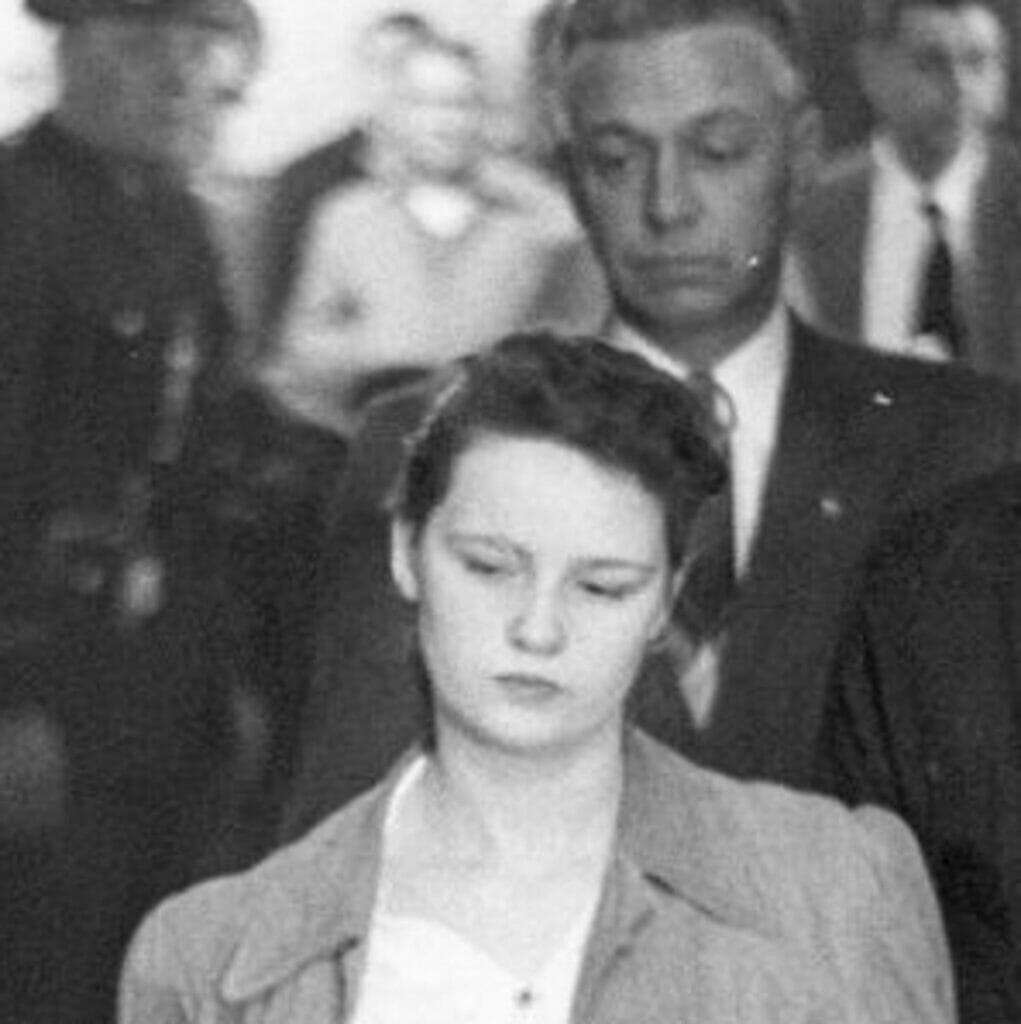
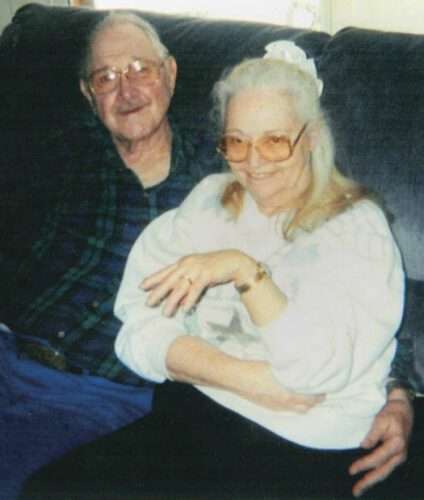
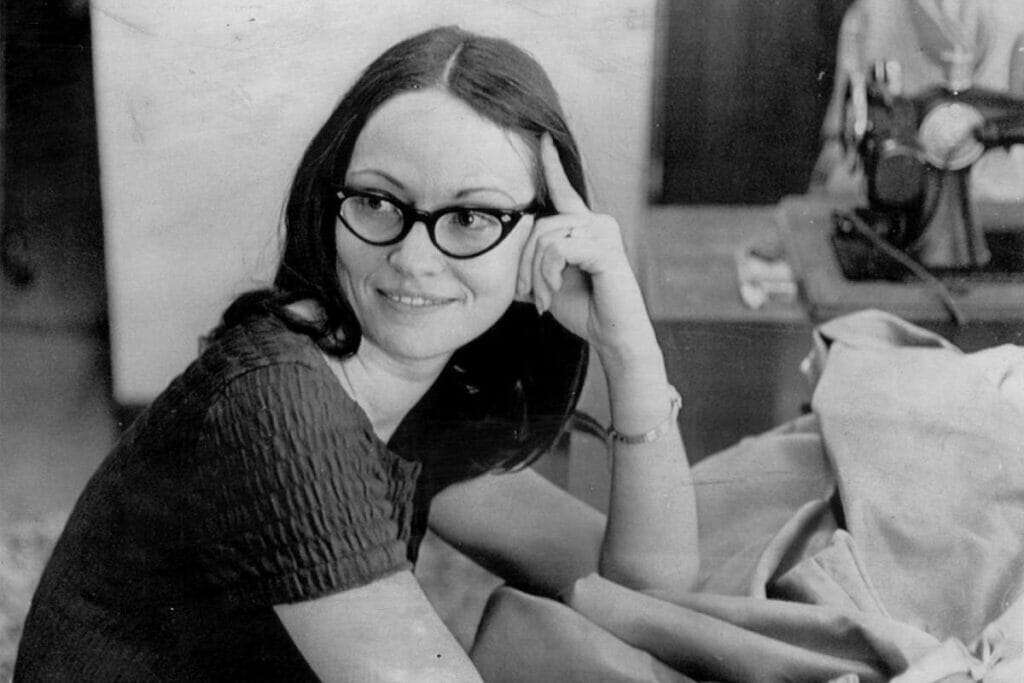
Caril Ann Fugate More News
The granddaughter of two of the 11 victims of Charles Starkweather’s murderous spree — an author who’s spent years studying the case — said Monday that Starkweather’s girlfriend, Caril Ann Fugate, deserves a pardon.
Liza Ward, whose grandparents S. Lauer and Clara Ward were killed in their Lincoln Country Club home in December 1958, said she’s convinced that the then-14-year-old Fugate was an unwilling hostage who was terrorized by Starkweather to accompany him and couldn’t escape.
“I could not find a single piece of evidence that she was guilty beyond a reasonable doubt,” said Ward, 44. “What I found, in fact, was that she was the victim of a system, an old boys network, that was fueled by the anger, fear and grief of the time.”
“It was just unbelievable to me, the miscarriage and mishandling of justice,” she said.
Ward traveled from her home in Duxbury, Massachusetts, in hopes of testifying on Tuesday before the Nebraska Board of Pardons, which will consider giving a pardon to Fugate, 76.
Fugate, who maintained her innocence, was convicted of first-degree murder and felony murder in the commission of a robbery and spent 17 years in prison before being paroled in 1976.
But Lincoln lawyer John Stevens Berry, who is representing Fugate — who now goes by her married name, Caril Ann Clair — said she was wrongly convicted, based on the testimony of Starkweather, who changed his story and implicated her after being informed that she didn’t want to see him ever again.
“She was railroaded; she was innocent,” said Berry, who co-wrote a book about her case. “They should (give her a pardon) because it’s the right thing to do.”




